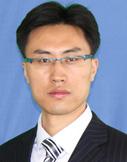Event
 China's Shifting Nuclear Policy and Its Implications for International Security
China's Shifting Nuclear Policy and Its Implications for International Security
Tong Zhao, Senior Fellow, Carnegie Endowment for International Peace

Evidence shows that the main goal of China’s nuclear weapons today is no longer only to maintain nuclear-level stability with the United States, but also to help achieve U.S.-China political stability. The new goal is broader and more ambiguous than the previous one, and creates new challenges for bilateral efforts to contain the risk of arms race and nuclear conflict. Technical-level factors can no longer fully explain the speed and scale of China’s current nuclear expansion and future efforts to maintain nuclear stability between Washington and Beijing may have to address the underlying political disagreements. This presentation analyzes the underlying political factor that drives the acceleration of China’s nuclear capability development and how it affects the U.S.-China nuclear competition, regional security in the Asia Pacific, and the future prospect of global nuclear arms control and nonproliferation cooperation.
Tong Zhao is a senior fellow in the Nuclear Policy Program at the Carnegie Endowment for International Peace, as well as a visiting research scholar at Princeton University’s Science and Global Security Program. His research focuses on strategic security issues, such as nuclear weapons policy, deterrence, arms control, nonproliferation, missile defense, hypersonic weapons, and China’s security and foreign policy. He serves on the board of directors of the Asia-Pacific Leadership Network for Nuclear Non-Proliferation and Disarmament and on the advisory board of the Missile Dialogue Initiative. Zhao is also an associate editor of Science & Global Security and is a member of the International Panel on Fissile Materials. Previously he was a Stanton Nuclear Security Fellow at Harvard University, a nonresident WSD-Handa Fellow at Pacific Forum, and worked for the Office of Foreign Affairs of the People’s Government of Beijing Municipality. He holds a PhD in science, technology, and international affairs from Georgia Institute of Technology, as well as an MA in international relations and a BS in physics from Tsinghua University. He is the author of “Tides of Change: China’s Nuclear Ballistic Missile Submarines and Strategic Stability” and “Narrowing the U.S.-China Gap on Missile Defense: How to Help Forestall a Nuclear Arms Race.”
This event is held onsite with a Zoom session. Please register in advance here:
https://upenn.zoom.us/meeting/register/tJEqcu2qrTIsH9N9Hqu7H-B4aKZ5lfJfwFvR
After registering, you will receive a confirmation email containing information about joining the meeting.
Open to all, informal lunch provided.
